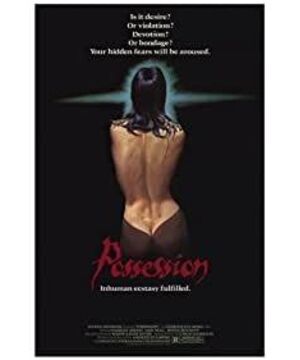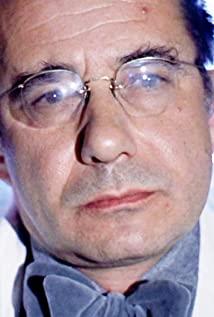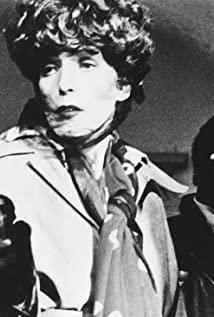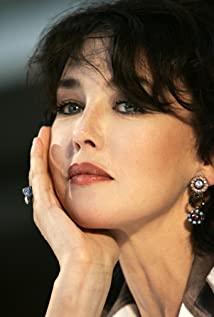Zulaski's images appear to be close to Polanski's, and they all explore people's fantasies, fears and unease. In "Possessed", Adjani's intercourse with the octopus is reminiscent of the scene in Polanski's "Rosemary's Baby" in which the heroine Rosemary intercourse with the devil. But Polanski's horrors lack a philosophical quality, and he's more adept at weaving rich and engaging storylines, which makes his films generally easier to understand and accept.
Zulaski's horror and unease are usually just the surface of things, he is actually closer to Kivlovsky, and the film is also full of dilemma. It's just that Kiflovsky is anxious about the morality of the world, while Zulassky is asking about the meaning of individual existence. Kivlovsky's melancholy is blue, calm and restrained; Zulasky's melancholy is black, and finally forced to death after extreme tension.
Of course, like all terrifying films, Zulaski knows how to use the movement of the camera, the contrast of colors, and the depiction of scene details to hint at the characters' personalities and emotions, creating an atmosphere of unease and horror. However, Zulasky does not focus on a complete narrative, but uses images to create a philosophical situation; his horror is not psychological, but leads to the eternal melancholy of life. So, in the movie "Possessed", it seems to depict the story of a wife cheating, but the director did not explain in detail the origin of the wife, husband, lover, and even the terrifying octopus, and why they met. The director is more concerned with how to describe the split personality caused by the self being manipulated, and the uncomfortable situation faced by people.
Therefore, we see that the country where the protagonist is located is controlled by other countries, and there are always soldiers on the other side of the wall looking at the wall; men are manipulated by society, and it is difficult to escape when they engage in espionage activities, so that their wives stay in the vacant room for a long time; A man who is not at home because of his special work gave up his dance career and took up the responsibility of taking care of the family. He is regarded as cute and docile by his husband as a pet. From society to family, every self is spied upon, imprisoned, and free from freedom.
The result of being imprisoned is often unstoppable resistance. Naturally, in the boredom of domestic chores and the absence of her husband, the heroine quickly falls into the arms of a warm, fun and passionate lover. The husband who learned the news resolutely quit his job, and when he returned to the family, he hoped that his wife would change her mind. However, the wife who has tasted the taste of freedom, although she has guilt towards her husband, is no longer able to give up the sweet adventure.
The thrilling tear started from here, choosing to be safe and secure, or to experience adventure, the heroine fell into anxiety, and she didn't know how to choose. She yearned for freedom, but imprisonment was in her blood, a part of herself. Imprisonment alienates people and becomes human instinct. When freedom comes, escape becomes an instinctive choice.
The heroine had prayed for God's help to relieve the trap of human freedom. She came to church, looking up to God, hoping to get God's answer. The camera replaces God's point of view to look at the poor and helpless heroine, who has been unable to speak, only groaning tiredly. However, miracles did not come when people needed them, and God was as silent as people, even more indifferent.
The hostess, who had nowhere to ask for help, finally went crazy. Isabella Adjani, who plays the heroine, offers a fiery performance here, perhaps one of the most insane scenes in film history. Carrying a bag of milk, she got out of the subway and collapsed instantly when she walked to the subway aisle. Her limbs swayed violently back and forth, screaming piercingly. The white milk burst in the violent shaking, and sprayed onto the blue dress and black hair, and the red blood spurted out of the ears, extremely gorgeous; Adjani's beautiful and pure face should have been rippling with tenderness and honey I mean, but now it is terrifying because of the distortion.
People are in such a lonely situation, and they can only sacrifice their own madness to their own contradictions, and in the madness, people get a little comfort and respite temporarily. However, the madness calms the conflict of human emotions, but it still cannot bridge the gap of choice. As long as there is still a trace of reason, the appeal of choice will always be like a sword hanging in the beam. In the weight of this unbearable choice, people often end up with escapism after madness, give up all possibilities, become insensitive, allow themselves to form an alliance with the devil, and finally move towards the end of inevitable death.
In this film, Zulasky explores the predicament of human existence with the crisis of the family. His black melancholy pervades and cannot be forgotten for a long time.
View more about Possession reviews











